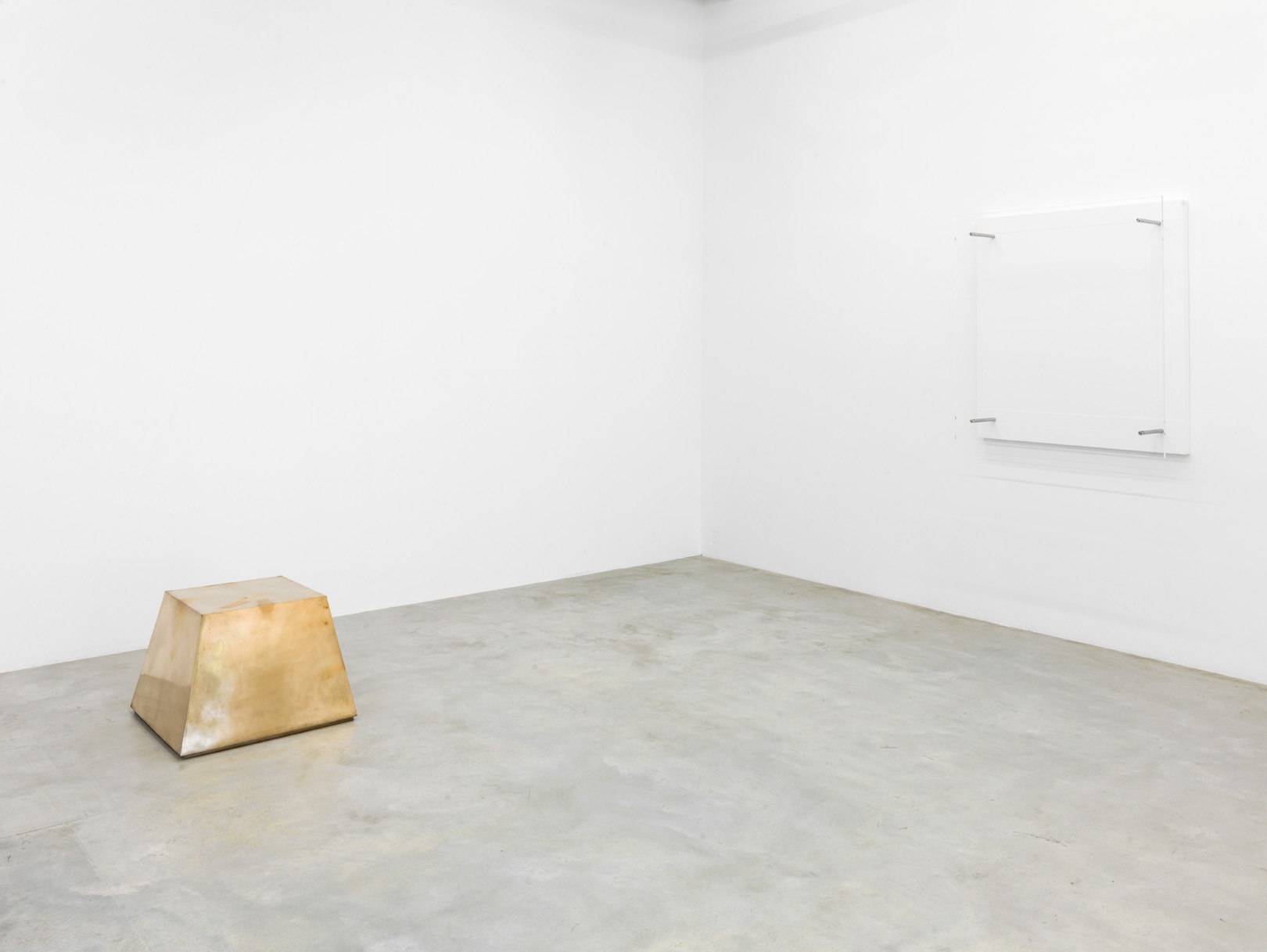Yuji Takeoka
14 Sep - 10 Nov 2018
YUJI TAKEOKA
14 September - 10 November 2018
The work of Yuji Takeoka stands for concentration, calm and precision. His work in bronze, brass, ceramic, glass, lacquer and Corian owe their absolute clarity to an accurateness in the manufacturing process, and reveal no evidence of the hand. While deeply rooted in the tradition of Japanese art, the artist does not dwell on the vocabulary and levels of meaning explored by his Japanese predecessors, but develops in the confrontation of the Minimal Art of the 1960s / 1970s. His own, very individual work interprets the language of reduction, simplicity and the question of the essence of things.
The arrangement and presence of the objects in the space plays a special role here. Takeoka stages his work with a concise accuracy, achieving a "total sound that seems to have a kind of finality that has left random behind." (Dr. Heinz Liesbrock). At the center of his practice is the question of the pedestal, which, since Duchamp, Brancusi and Manzoni has been one of the central problems of sculpture. The specific conditions of showing and exhibiting 3-dimensional work within the spatial context of museums and galleries are constantly questioned anew.
Yuji Takeoka (born 1946 in Kyoto, Japan, lives and works in Düsseldorf). Between 1995 and 2013 Takeoka was a professor at the Academy of Arts in Bremen. Major solo exhibitions have been dedicated to him at The National Museum of Art in Osaka, the Museum of Modern Art, Saitama, the Toyama Memorial Museum, the Josef Albers Museum, Quadrat, Bottrop, the Gerhard Marcks house in Bremen and at the art associations in Stuttgart, Münster and Dusseldorf. Konrad Fischer Galerie has exhibited his work since 1986.
Takeoka participated in Documenta IX (1992) and exhibited his work in key survey exhibitions of Minimal Art: the Museum Morsbroich, Leverkusen (2015), the National Museum of Modern Art, Kyoto, the Reina Sofia, Madrid, and the National Museum of Contemporary Art, Seoul (all 2001).
His work is included in the collections of the National Museum of Art, Osaka and the Chiba Museum of Art, Japan, in S.M.A.K. in Ghent, the Sprengel Museum Hannover, the Museum Kunstpalast, Düsseldorf and in the collections of Deutsche Bank and Daimler Contemporary.
14 September - 10 November 2018
The work of Yuji Takeoka stands for concentration, calm and precision. His work in bronze, brass, ceramic, glass, lacquer and Corian owe their absolute clarity to an accurateness in the manufacturing process, and reveal no evidence of the hand. While deeply rooted in the tradition of Japanese art, the artist does not dwell on the vocabulary and levels of meaning explored by his Japanese predecessors, but develops in the confrontation of the Minimal Art of the 1960s / 1970s. His own, very individual work interprets the language of reduction, simplicity and the question of the essence of things.
The arrangement and presence of the objects in the space plays a special role here. Takeoka stages his work with a concise accuracy, achieving a "total sound that seems to have a kind of finality that has left random behind." (Dr. Heinz Liesbrock). At the center of his practice is the question of the pedestal, which, since Duchamp, Brancusi and Manzoni has been one of the central problems of sculpture. The specific conditions of showing and exhibiting 3-dimensional work within the spatial context of museums and galleries are constantly questioned anew.
Yuji Takeoka (born 1946 in Kyoto, Japan, lives and works in Düsseldorf). Between 1995 and 2013 Takeoka was a professor at the Academy of Arts in Bremen. Major solo exhibitions have been dedicated to him at The National Museum of Art in Osaka, the Museum of Modern Art, Saitama, the Toyama Memorial Museum, the Josef Albers Museum, Quadrat, Bottrop, the Gerhard Marcks house in Bremen and at the art associations in Stuttgart, Münster and Dusseldorf. Konrad Fischer Galerie has exhibited his work since 1986.
Takeoka participated in Documenta IX (1992) and exhibited his work in key survey exhibitions of Minimal Art: the Museum Morsbroich, Leverkusen (2015), the National Museum of Modern Art, Kyoto, the Reina Sofia, Madrid, and the National Museum of Contemporary Art, Seoul (all 2001).
His work is included in the collections of the National Museum of Art, Osaka and the Chiba Museum of Art, Japan, in S.M.A.K. in Ghent, the Sprengel Museum Hannover, the Museum Kunstpalast, Düsseldorf and in the collections of Deutsche Bank and Daimler Contemporary.

